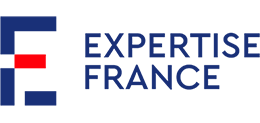The project "Living and Producing in the Chaco Forest" develops actions to revalue the production of sheep wool and meat in a community way in Salta (Argentina)
Argentina, September 21, 2020. Strengthening the identity of rural women as producers and weavers is one of the objectives of the project "Living and producing in the Chaco Forest". Therefore, together with the Asociación Real Frontera in the municipality of Santa Victoria Este (in Salta, Argentina), meetings and learning workshops are being developed on these topics.
These actions are part of the strategy to promote the recovery of traditional practices for wool production, weaving, and the use of fleece (lamb or sheep wool), activities that were historically marginalised and are carried out by the women of Chaco. Moreover, these allow them to improve their economic income and therefore it is important to formalise them.
In this context, the project provides advice to 10 women and their respective families, and it also promotes the presentation of a draft Sheep Law for the Province of Salta, which aims to:
- Diversify the current production system by strengthening sheep farming for wool and meat production.
- Improve the quality of sheep meat and wool by incorporating quality genetics to increase productivity and environmental resistance.
- Generate technical information for the representative ovine activity in the region through a data survey and calculation of productive and reproductive indices.
 |
| Mrs. Rosa Tejada, project beneficiary, and her granddaughter, in the corral where they raise sheep |
Currently there is no information on local sheep activity, so the generation of technical information will help with the design, implementation and monitoring of traditional practices; furthermore, it will complement cattle breeding, which is the main economic activity in the area, and favour the diversification and economic sustainability of the producing families.
For the group of women it will mean the beginning of a process of revaluation and recognition of their work, since, by means of the project, the intention is to carry out their registration in the National Sanitary Registry of Agricultural Producers (Renspa) as ovine producers, which will allow them to request credit for the development of their activities.
Revaluation of ancestral practices
The main productive activities of Chaco women are garden farming and raising goats and sheep for meat to sell. The men are beef producers, an activity considered to be of greater importance in the area because it generates more economic income, but it also leads to the invisibility of rural women's work.
In recent years there has been a notable loss of the shearing culture (the process of obtaining wool from sheep), and its commercialisation. Similarly, the practice of weaving items such as mattresses, quilts, pullovers and hammocks is being lost due to weak access to markets, and poor infrastructure for sheltering livestock, which produces a high mortality rate in lambs and the resulting waste of wool, not only as a commercial opportunity but also as cultural enrichment.
 |
| Hand woven and embroidered saddlebags by Mrs. Rosa Tejada using sheep's wool |
With the work done by the project "Living and Producing in the Chaco Forest" the work of rural women is being rescued, with a revaluing of sheep activity and the wool production tradition of the region. It is hoped that workshops for the recovery of wool and weaving production practices, as well as improvements in the treatment of sheep herds through investments in property infrastructure and tools, will strengthen the organisation and identity of the women's group, and therefore that of the entire Royal Border Association.
DATA
- The project "Living and Producing in the Chaco Forest" is developed by the National Institute of Agricultural Technology (INTA), and is part of the "Forests, Biodiversity and Ecosystems" sector of the EUROCLIMA+ programme, implemented by the agencies Expertise France (EF) and the German Society for International Cooperation (GIZ) GmbH. Learn more about the project here.
- In the cover photo you can see part of the group of beneficiaries of the project at a meeting with Jacqueline Bazzana, a technician from INTA.
About EUROCLIMA+
EUROCLIMA+ is a programme financed by the European Union and co-financed by the Federal Government of Germany through the Federal Ministry for Economic Cooperation and Development (BMZ), as well as by the governments of France and Spain. It aims to reduce the impact of climate change and its effects in 18 Latin American and Caribbean countries by promoting climate change mitigation and adaptation, resilience, and investment. The Programme is implemented under the synergistic work of seven agencies: the Spanish Agency for International Development Cooperation (AECID), the French Development Agency (AFD), the Economic Commission for Latin America and the Caribbean (ECLAC), Expertise France (EF), the International and Ibero-American Foundation for Public Administration and Policy (FIIAPP), the German Society for International Cooperation (GIZ), and UN Environment.
Contact for more information: This email address is being protected from spambots. You need JavaScript enabled to view it.

.jpg)


